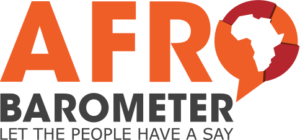More than one in four people who accessed public services during the previous year had to pay a bribe, according to the new Global Corruption Barometer – Africa 2019, released on African Anti-Corruption Day (today) by Transparency International and Afrobarometer.* The report highlights that corruption disproportionately affects the poorest citizens, who have to pay bribes twice as often as the richest to access public services such as health care and police assistance.
Key findings
▪  Corruption is on the rise: On average across 35 countries, more than half (55%) of all citizens think that corruption in their country increased in the previous 12 months. Only 23% think it declined (Figure 1).
Corruption is on the rise: On average across 35 countries, more than half (55%) of all citizens think that corruption in their country increased in the previous 12 months. Only 23% think it declined (Figure 1).
▪ Many governments are failing to do enough: Only one in three citizens (34%) think their government is doing a good job at fighting corruption, while 59% rate their government’s performance as bad (Figure 2).
▪ Concerns about the integrity of public officials are high: Among key public institutions, police are most widely seen as corrupt; almost half (47%) of people say “most” or “all” police are corrupt. But many also see most or all government officials (39%) and parliamentarians (36%) as corrupt (Figure 3).
▪ Bribery demands are a regular occurrence for many: More than one in four citizens who accessed public services, such as health care and education, paid a bribe in the previous year. This is equivalent to approximately 130 million people in the 35 surveyed countries.
▪ Corruption hits the most vulnerable hardest: The poorest people are twice as likely to pay a bribe as the richest, and young people (aged 18-34) are more likely to pay a bribe than their elders.
▪ Despite fears of retaliation, citizens can make a difference: Two-thirds (67%) of citizens fear retaliation if they report corruption. Even so, more than half (53%) think ordinary people can make a difference in the fight against corruption.
*A partner of the National Endowment for Democracy.







